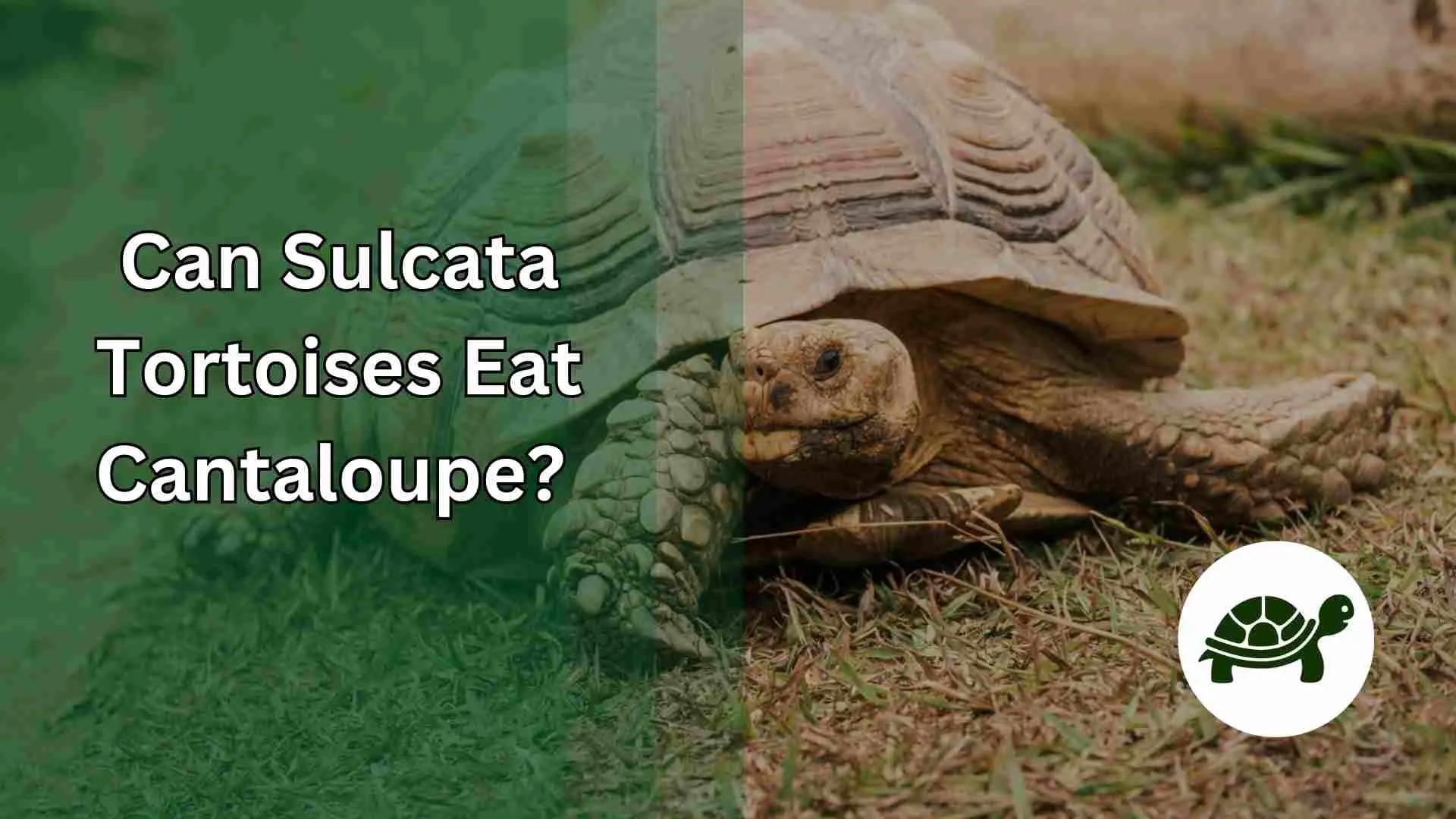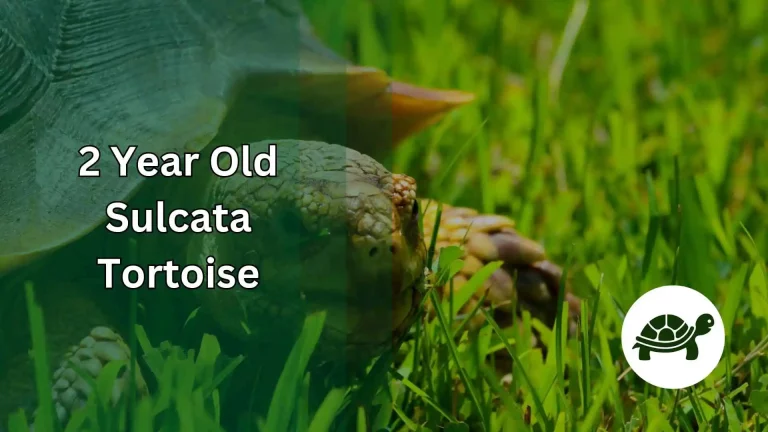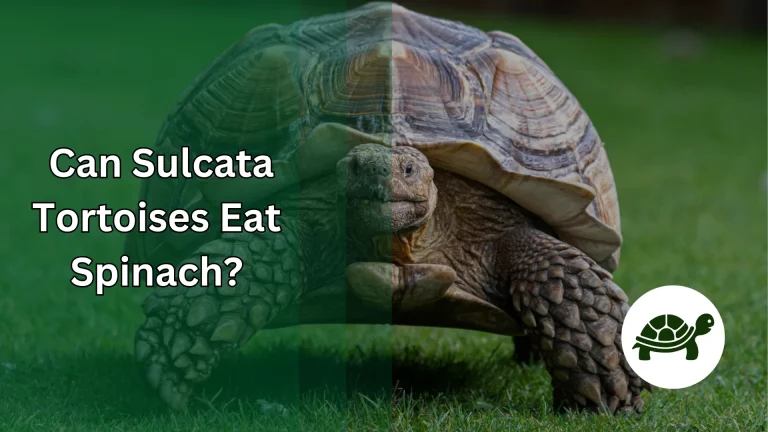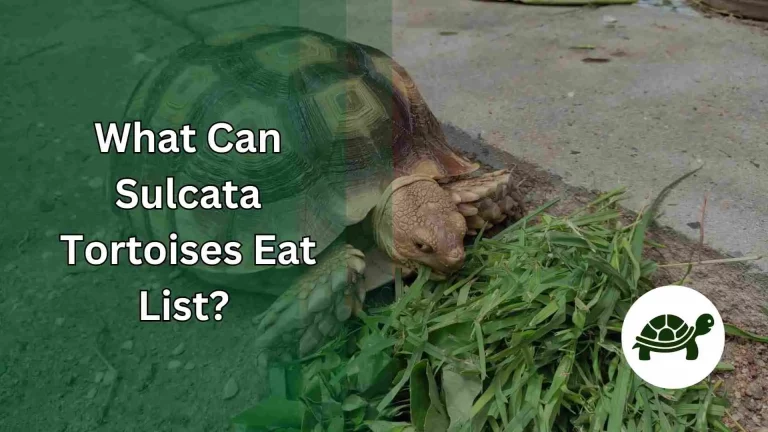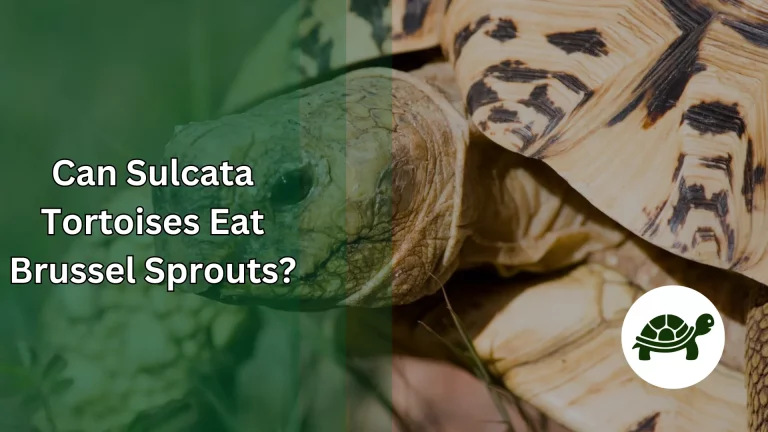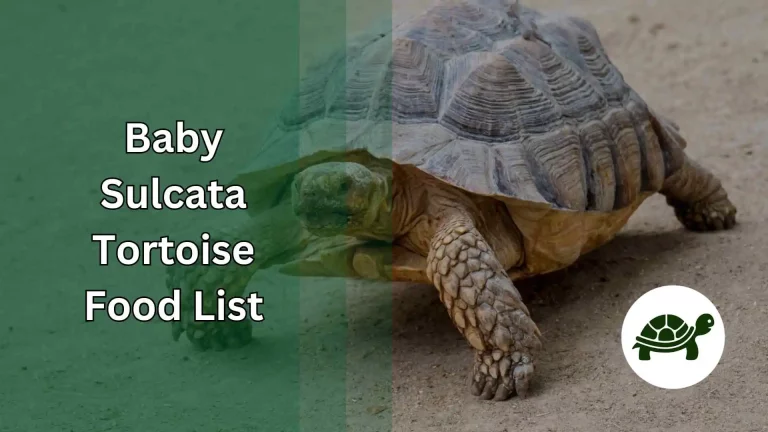Can Sulcata Tortoises Eat Cantaloupe? – All You Need To Know
Sulcata tortoises, also known as African spurred tortoises, are a true marvel of nature. Their immense size and intricate shell patterns make them a captivating addition to the world of reptiles. Originating from the arid regions of Africa, these remarkable creatures have evolved with specific dietary needs tailored to their harsh natural habitat.
As sulcatas increasingly find their way into households as cherished pets, questions about their dietary choices have become more prevalent. Among the many inquiries that arise, one common query stands out: can these gentle giants safely indulge in the sweet and juicy goodness of cantaloupe?
In this comprehensive article, we embark on a journey to explore whether cantaloupe deserves a spot on the menu for sulcata tortoises and unravel the intricacies of their dietary preferences. This introduction sets the stage by introducing sulcata tortoises, highlighting their unique characteristics and natural habitat, and touching upon the growing interest among pet owners in offering diverse foods.
What are Sulcata Tortoises?
Sulcata tortoises, officially known as Geochelone sulcata, are among the largest species of tortoises on the planet, with adults often weighing in at over 100 pounds. Originating from the dry and hot regions of North and Central Africa, these majestic creatures are easily identifiable by their broad, domed shells and distinctive spur-like scales on their hind legs, earning them the moniker “African spurred tortoise.”
Their natural habitat, primarily consisting of savannahs and desert edges, influences their dietary and hydration needs. Being primarily herbivores, sulcatas thrive on a diet rich in grasses, weeds, and some leafy greens, with fruits only making up a small portion, if at all. As sulcatas have grown in popularity as household pets, understanding their dietary needs and natural behaviors has become paramount for responsible ownership.
The Nutritional Profile of Cantaloupe
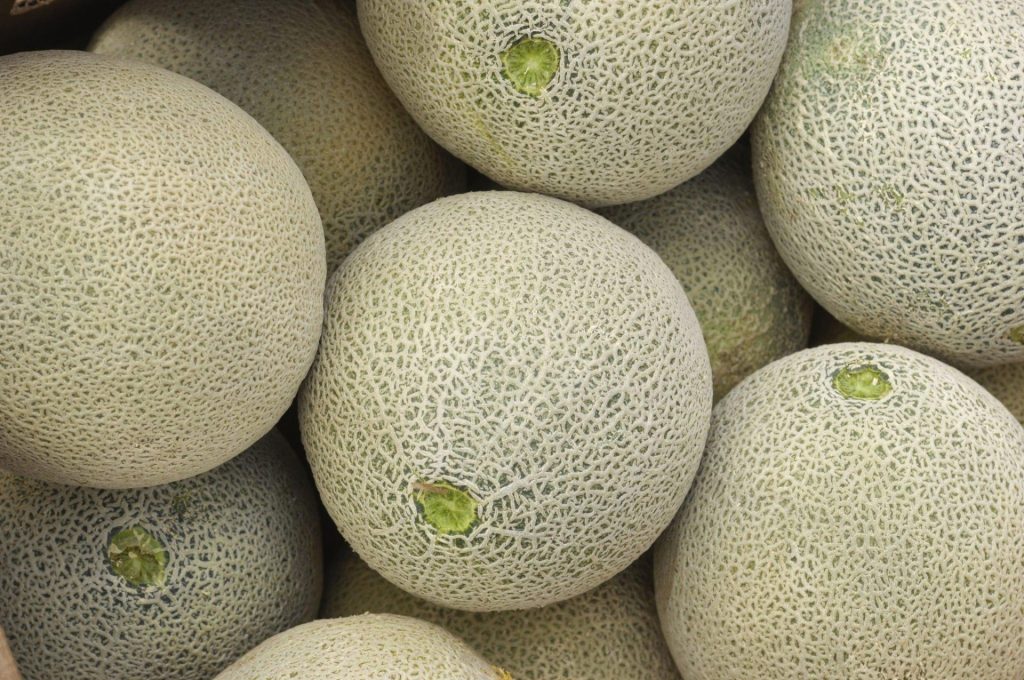
Cantaloupe is a delightful summer fruit that many of us relish. But what’s inside this orange melon? Let’s break it down.
Firstly, water. Cantaloupes are mainly made up of water – about 90%! This makes them a hydrating snack, especially on a hot day. Next, vitamins. They’re packed with Vitamin A and Vitamin C, both crucial for overall health. Vitamin A is great for vision, while Vitamin C boosts immunity.
But there’s more! Cantaloupes have dietary fiber which aids digestion. They also offer a modest amount of potassium, which is essential for heart health. On the flip side, cantaloupes do contain natural sugars. It’s this sweetness that makes them so tasty!
So, for us humans, cantaloupes are a health win. But what about for sulcata tortoises? Keep reading to find out.
Benefits of Feeding Cantaloupe to Sulcata Tortoises
Ever seen a sulcata tortoise munch on cantaloupe? It’s quite the sight! But besides the entertainment value, are there real benefits? Let’s dive in.
Hydration Boost
Cantaloupes, being 90% water, can offer sulcatas a hydration boost. On those extra warm days, a small slice might just be the treat your tortoise needs.
Vitamin-packed
Cantaloupes are a vitamin treasure chest. The Vitamin A present can support healthy vision for tortoises, while Vitamin C can aid in overall well-being.
Digestive Aid
The fiber in cantaloupes can help with digestion. A little goes a long way in ensuring smooth digestion for our shelled friends.
In moderation, cantaloupes can be a flavorful treat with health perks for sulcatas. But, always balance it out with their main diet to keep them thriving!
Concerns and Limitations
Cantaloupes might have their perks, but there are some caution flags to note before serving them up to your sulcata.
Sugar Alert
Yes, cantaloupes are sweet, and that’s due to their natural sugars. Too much sugar isn’t ideal for sulcatas. It can disrupt their gut balance.
Not a Main Course
Remember, in the wild, sulcatas aren’t feasting on fruits daily. Their main diet revolves around grasses and leafy greens. So, cantaloupes? Think of them as occasional treats.
Watch the Quantity
A little cantaloupe can be a treat, but a lot can be a tummy problem. Moderation is key. Small portions ensure your tortoise enjoys without overindulging.
In short, while cantaloupes have benefits, they’re not a staple. Being aware of these concerns will help you offer a balanced diet to your sulcata tortoise.
Safe Feeding Guidelines
Feeding your sulcata cantaloupe? Let’s ensure it’s done right with these simple steps.
Start Small: Introduce cantaloupe in tiny amounts. A bite-sized piece is perfect to begin with. This lets you observe any reactions before giving more.
Prep Right
Wash the cantaloupe well. Remove the seeds and cut it into manageable pieces. This ensures safe eating without any choking hazards.
Frequency Matters
Cantaloupes are treats, not regular meals. Think of them like desserts for your tortoise—occasional and in moderation. Once or twice a month is plenty.
Remember, every tortoise is unique. Always monitor their behavior after introducing new foods. And when in doubt, a chat with a reptile expert or vet can provide added guidance.
Alternatives to Cantaloupe
So you’re exploring beyond cantaloupe for your sulcata’s menu? Great! Let’s look at some tasty and safe alternatives.
Berries on Board
Blueberries and strawberries can be a hit. They’re packed with nutrients and offer a juicy treat. Remember, just a few at a time!
Leafy Greens
Romaine lettuce, dandelion leaves, and collard greens are all sulcata-approved. These should form a major part of their diet.
Veggies for the Win
Think bell peppers, zucchini, and carrots. Crunchy, nutritious, and sulcata-friendly.
Exploring variety is awesome, but always keep their natural diet in mind. Grasses and leafy greens first, treats on the side. That’s the recipe for a happy, healthy tortoise! To know more about what to feed your Sulcata Tortoise, chick here.
Frequently Asked Questions (FAQs)
1. How often can I give my sulcata tortoise cantaloupe?
While cantaloupe is a delightful treat, it should remain just that—a treat. Serving it once or twice a month is a good rule of thumb.
2. Are there any fruits that sulcata tortoises shouldn’t eat?
Absolutely. It’s best to avoid feeding sulcatas citrus fruits like oranges and lemons. They’re too acidic and can upset the tortoise’s digestive system.
3. Can I mix cantaloupe with other fruits for my sulcata?
Yes, you can offer a mix of fruits occasionally. However, always ensure the combined amount is moderate and doesn’t overdo the sugar content.
4. Is the cantaloupe rind safe for sulcatas?
While the rind isn’t toxic, it’s tougher and can be hard for the tortoise to digest. Stick to the juicy, fleshy part for a safer treat.
5. I’ve heard watermelon is a good alternative to cantaloupe. True?
Watermelon is indeed hydrating and can be an occasional treat. But like cantaloupe, it’s best given in moderation due to its sugar content.
Conclusion
Feeding our sulcata tortoises can be both a joy and a challenge, especially when exploring the variety of fruits and vegetables to offer. Cantaloupe, with its hydration and vitamin benefits, can be a delightful treat for your shelled friend when given in moderation. However, always prioritize their natural diet of grasses and leafy greens. As we’ve learned, understanding and respecting their dietary needs is the key to ensuring a long, healthy life for our majestic African spurred tortoises.
By staying informed and attentive, we can make every mealtime a moment of joy and nourishment for these wonderful creatures, all while offering them the best care possible.

